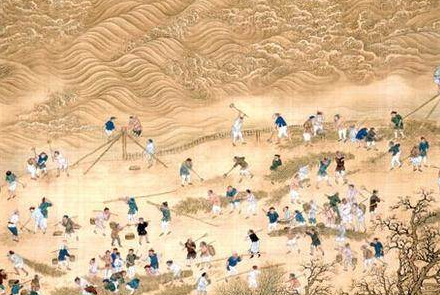The Ding Taxation System, an ancient tax system, occupied an important position in the history of ancient China. So, what is the popular meaning of the Ding Taxation System? What are its drawbacks? This article will provide you with a detailed analysis.

Firstly, the popular meaning of the Ding Taxation System. Also known as "Ding Tax and Land Taxation," the Ding Taxation System was an ancient Chinese system of levying land taxes based on population. In layman's terms, it meant that all the land in a region was apportioned to local residents according to certain standards, and then land taxes were collected based on the amount of land allocated to each individual. The purpose of this system was to ensure the stability of the state's fiscal revenue while also reflecting the principle of fair distribution of land resources in ancient society.
Secondly, the drawbacks of the Ding Taxation System.
1. Unfair land distribution. Although the original intention of the Ding Taxation System was to achieve fair distribution of land resources, in reality, due to differences in land resources in various regions and factors such as population mobility, land distribution was often unfair. Residents in barren areas might receive less land, while those in fertile areas might receive more, undoubtedly widening the gap between the rich and the poor.
2. Increased burden on farmers. The Ding Taxation System required farmers to pay land taxes based on the amount of land allocated to them, which increased their burden. Especially in cases of severe land annexation, some landlords and wealthy merchants purchased large amounts of land through various means, leading to farmers receiving less and less land while taxes increased, severely affecting farmers' production and livelihood.
3. Hindrance to the development of agricultural productivity. Due to the existence of the Ding Taxation System, farmers often chose to cultivate low-yield and easy-to-grow crops to reduce their tax burden, rather than high-yield and efficient crops. This greatly restricted the development of agricultural productivity and was not conducive to the country's economic development.
4. Impact on social stability. The issues of the wealth gap and increased burden on farmers caused by the Ding Taxation System were prone to trigger social conflicts and unrest. In some areas, there were even instances of peasant uprisings and other social unrest, which had a significant impact on the stability of the country.
In summary, the Ding Taxation System, as an ancient tax system, although to a certain extent reflecting the principle of fair distribution of land resources in ancient society, also had many drawbacks that cannot be ignored. With the development of history, this system was gradually phased out and replaced by more fair and reasonable tax systems.
Disclaimer: The above content is sourced from the internet and the copyright belongs to the original author. If there is any infringement of your original copyright, please inform us and we will delete the relevant content as soon as possible.
































